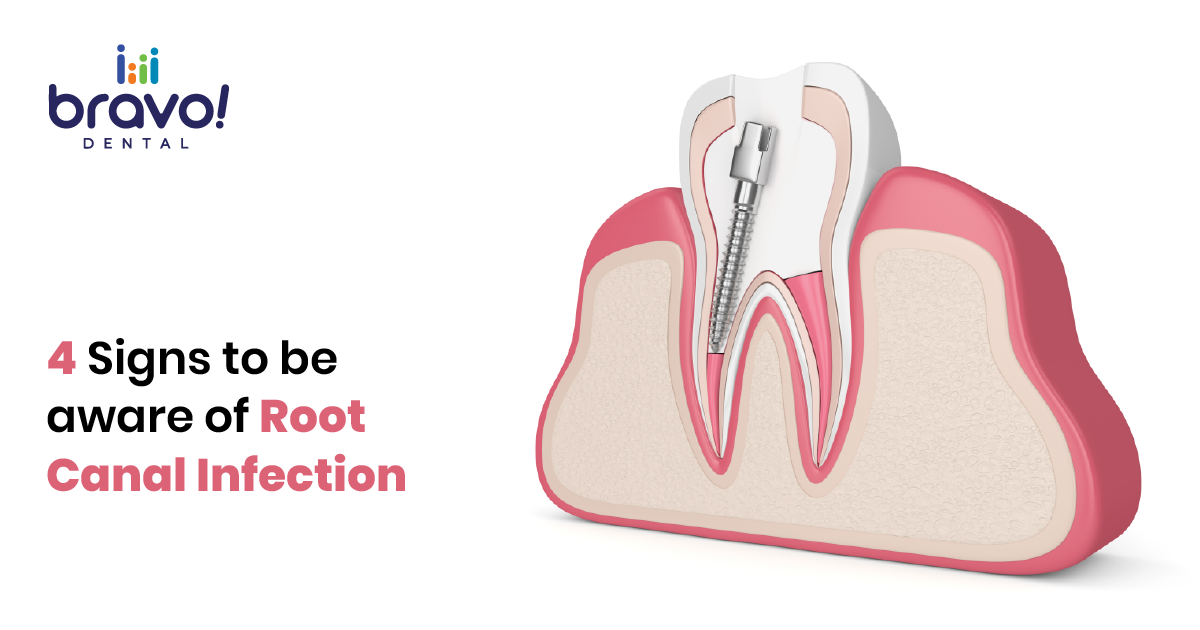
Root canals are a very common operation in dentistry. The American Association of Endodontists estimates that approximately 25 million root canals are performed in the United States each year.
A root canal infection is a painful oral ailment caused by bacteria invading the inner layer of the teeth as a result of untreated dental decay or trauma. Root canal therapy is a popular procedure for cleaning diseased pulp and restoring a tooth.
A root canal procedure involves removing the pulp of a tooth that has become infected or damaged due to dental decay or other trauma. Contrary to popular belief though, root canals are a relatively safe procedure that can help save your decaying teeth.
4 major signs to be aware of
1. Pain/ Soreness
When faced with a root canal infection, the most common symptom that prompts patients to seek dental help is pain. A root canal infection causes excruciating agony. The pain becomes more intense when you bite down or apply pressure to the impacted tooth. You may also suffer dental sensitivity when consuming hot or cold foods and beverages. Inflammation of the gums can also cause discomfort. In the majority of cases, swelling and pain occur around the damaged tooth.
2. Teeth Darkening
The tooth may seem brown or yellow when the tooth’s inner layer is infected. When an infection reaches the pulp tissues, they turn dark brown, changing the color of the tooth.
Procedure: The dying or necrotic pulp material will be evacuated and the gap filled with gutta-percha during the root canal surgery. A dental crown can be placed on the tooth to improve its look.
3. Dental Abscess
When germs and dying pulp material form deep pockets full of pus around the tooth root, it is called a dental abscess. An enormous or prolonged red lump or pimple on the gum produces considerable discomfort and foul breath and is apparent as an enlarged or persistent red bump or pimple. A periodontist will drain the painful abscess during the root canal surgery and clean out the germs to relieve the discomfort.
4. Chronic halitosis (bad breath)
Patients who have a root canal infection frequently experience terrible breath for a long time. If your foul breath persists despite brushing, flossing, and utilizing dental washes, you may have an infection.
Like any other infection, a root canal infection can spread to surrounding tissue in the mouth, including additional teeth, gums, and cheek and facial tissue. However, if you seek treatment within hours or days of the onset of the illness, the spread of the infection to the tooth and neighboring teeth and tissues can be mitigated.
An untreated root canal infection can extend far beyond the tooth. The infection can spread to the jaw, cheek, and even the bloodstream in some cases.
If you experience any dental discomfort or any of the above-mentioned warning signs, feel free to approach Bravo Dental immediately. Our experts can diagnose if you require a root canal to relieve your agony. We guarantee you’ll be glad you did!
happy to hear from you, contact us
Fill out the contact form below and Feel free to send any question or query.




